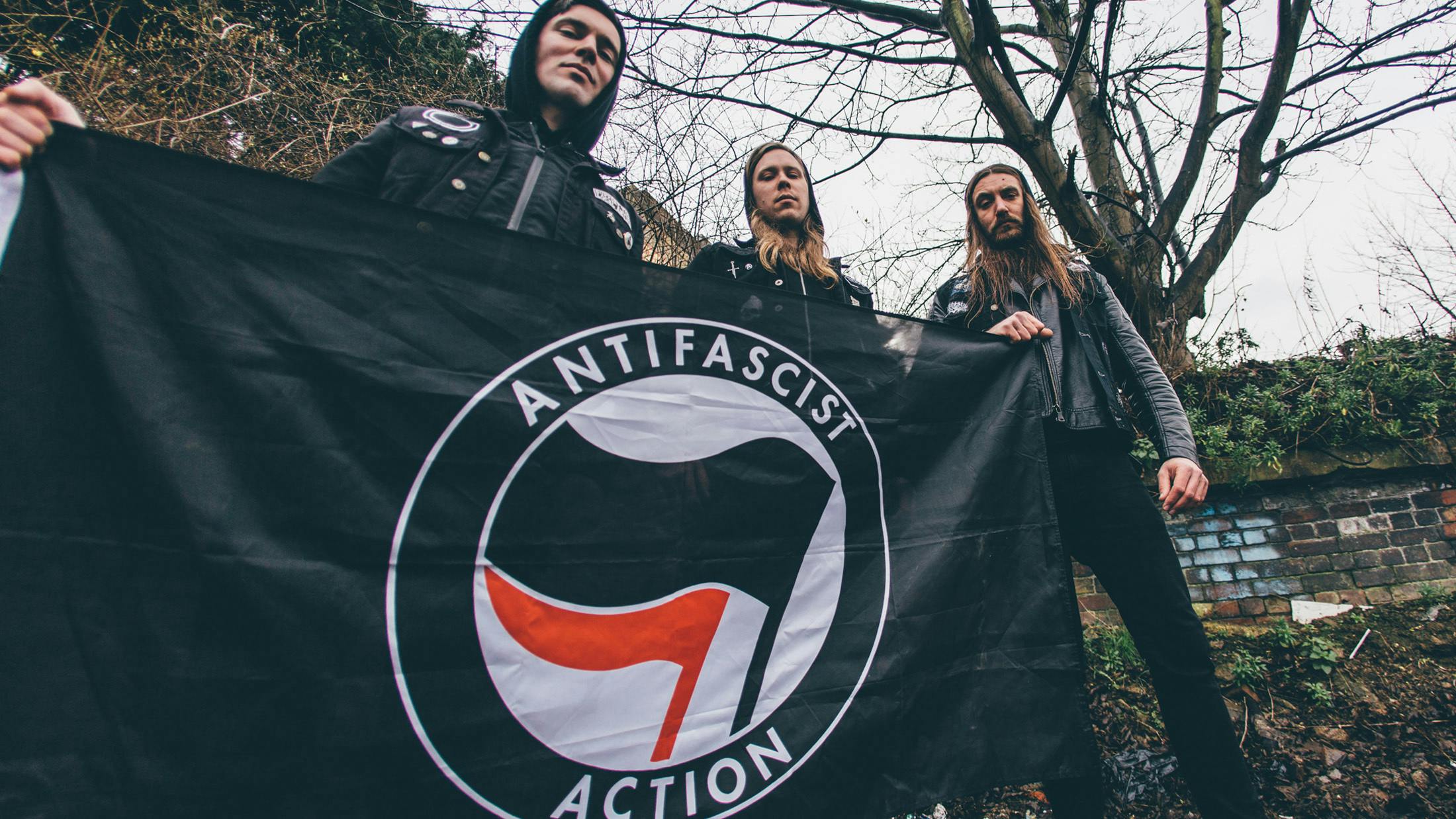But where did this movement come from, and why is it finding legs now? Black metal is a decades-old genre after all, and while the darkest corners have contained their share of artists with far-right views, it would be untrue in the extreme to suggest that going to a black metal show is akin to attending a KKK rally, with any edginess often being pure bravado. But, as the above artists say, it’s the complacency and acceptance of these things as part of the furniture, not just in black metal but in life, that presents more of an issue than some may realise. In a world of a visible far-right, where incidents like those of Charlottesville are a horrifying reality, low-level comment and right-wing YouTube channels are, says Richard, a seed from which these things can grow.
“For me, the main concern is not the super-obtuse, swastika-tattooed skinhead NSBM fan, but people with more moderate and centrist ideals,” he reasons. “No-one takes [YouTube trolls] seriously, but when people are saying, ‘Hey, give him a chance to say his piece,’ you invite the flies into your home to sit at the dinner table with you. It’s easy to stomp out cartoon Nazis, but the misguided people in the scene who shout for equality and fight tooth and nail to give fascists a platform are a threat. People like to claim equality for all, but giving a voice to those who shout, ‘genocide’ is not good.”
One criticism, of course, is that this curtails free speech. Glacial Tomb’s Ben Hutcherson disagrees: his stand against the right in music is simply a case of actions having consequences.
“It’s important to clarify that the claim that the ‘metal thought-police’ are coming for everyone’s Burzum records is a gross, hyperbolic misrepresentation of what we’re working towards,” he says. “I would rather folks not listen to NSBM, and the idea of a heavy metal that no longer punches down is a very appealing one. But the point is that freedom to choose what you listen to is not a freedom from the repercussions of supporting individuals and groups who espouse racist, sexist, homophobic, transphobic or fascist rhetoric.”
Where these artists see this as important is the manner in which it reflects more dangerous attitudes in the wider world; ones that can lead to dark places indeed.
“The black metal Nazis will scream and stamp their feet, ‘Make black metal dangerous again,’ but piss their leather pants as soon as you get mad and clench your fist,” scoffs Kriegmaster Hatesturm. “Like, your politics will literally lead to me and everyone I give a fuck about being bulldozed into mass graves. And I’m supposed to take that sitting down or I’m a thin-skinned poseur? I’m not a fucking dog – back your fucking words up. I’m not going to sit down, let you piss on me, and thank you for it. Get fucked.”
